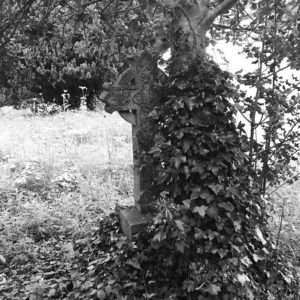Seventy-seven years ago, my friend Archie set foot on a beach in northern France.
Archie was 21 years old at the time. He was from Newtownards in Co Down, the town where I knew him in my days as a curate. Archie had volunteered to join the Royal Air Force three years previously, in 1941, when he was 18. There was no conscription in Northern Ireland, Archie chose to join up.
Archie trained as a radio operator, imagining that this would lead him to becoming the member of a bomber crew. However, the Canadian army were short of radio operators and Archie was transferred to serve with the First Canadian Army. Thus it was on 6th June 1944 that he found himself leaping into the water from an allied landing craft with a radio pack on his back and running onto the beach at Saint Aubin sur Mer. The beach had the code name “Juno.”
Archie avoided commemorations, he took the view that they didn’t capture the horror of the events. Archie never attended Remembrance Sunday parades where priests and politicians uttered inanities and returned to their comfortable lives. He believed that many of those who spoke would not have been at the parades if they had seen the things he had seen.
When books were published to mark the 60th anniversary of D-Day in 2004, there seemed to be many veterans who shared Archie’s opinion. Martin Bowman collected a series of reminiscences in his book Remembering D-Day: Personal Histories of Everyday Heroes. Bowman quoted from Donald Burgett, a member of the 101st Airborne Division who was nineteen years old when he landed in Normandy. Burgett said,
It was dirty and dehumanising and disgusting . . . I just hope that when they make their fine speeches on the beachheads they remember what happened. I do. Every night of the year. The images of the dead always wake me up.
Archie never talked about the fighting, he never talked about the advance across Europe. Archie’s stories were about trivia, about how .303 rifles were useless for shooting rabbits, as the bullet went straight through and the rabbit ran on. Or his stories were about sadness, like the moment of finding three soldiers dead after a V2 rocket site had been captured and the three men had drunk alcoholic rocket fuel and died from poisoning. The horrors, he saved to himself.
I remember Archie this day every year. We walked many miles of the roads of Ulster together. He was a true hero.


